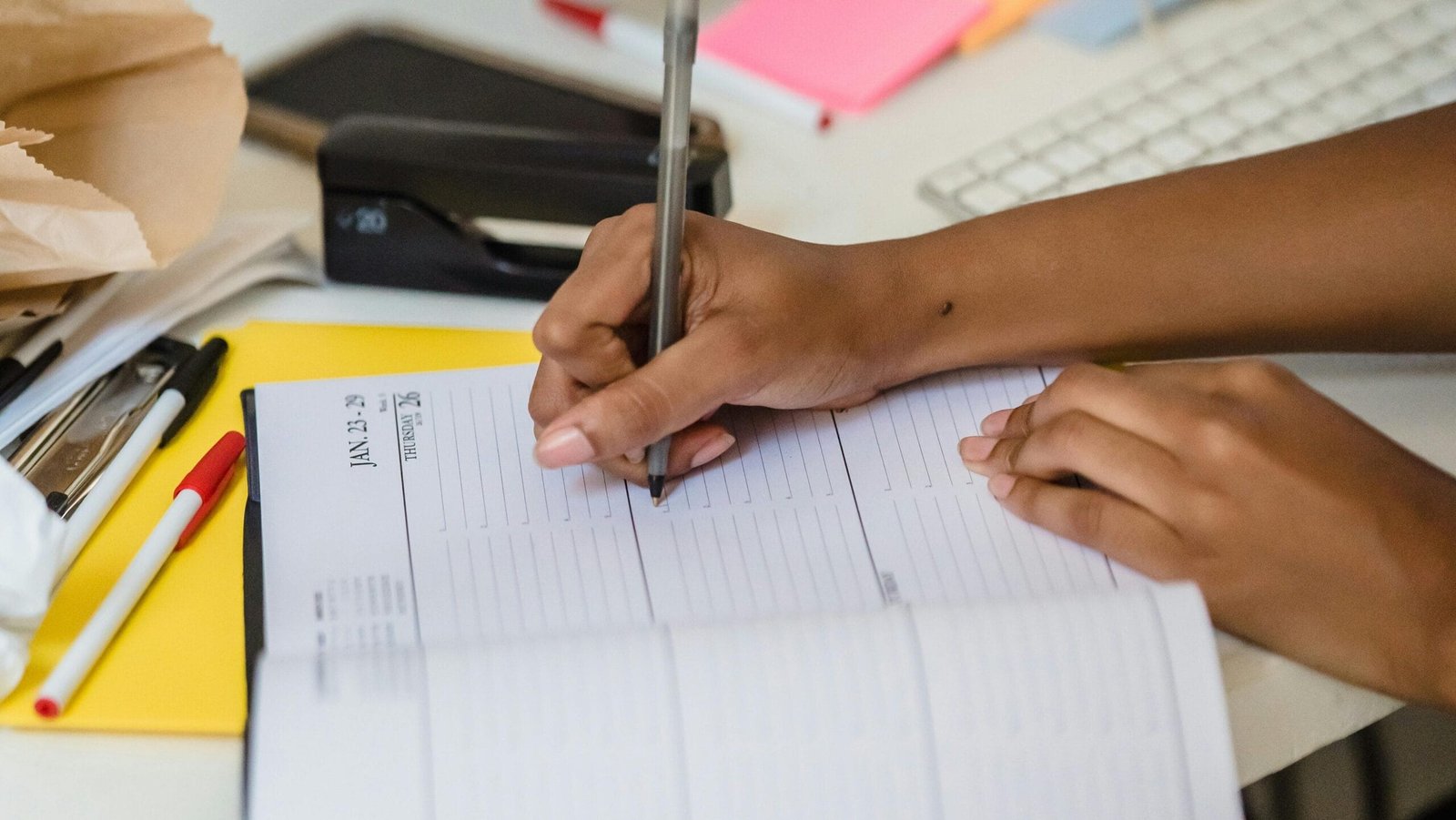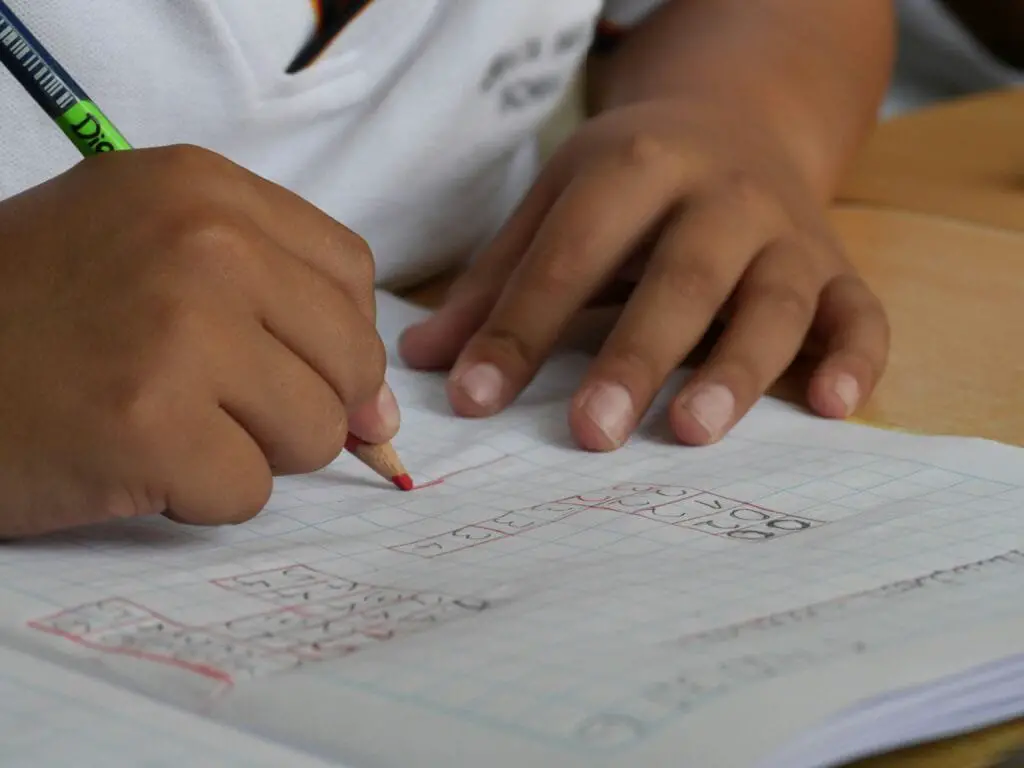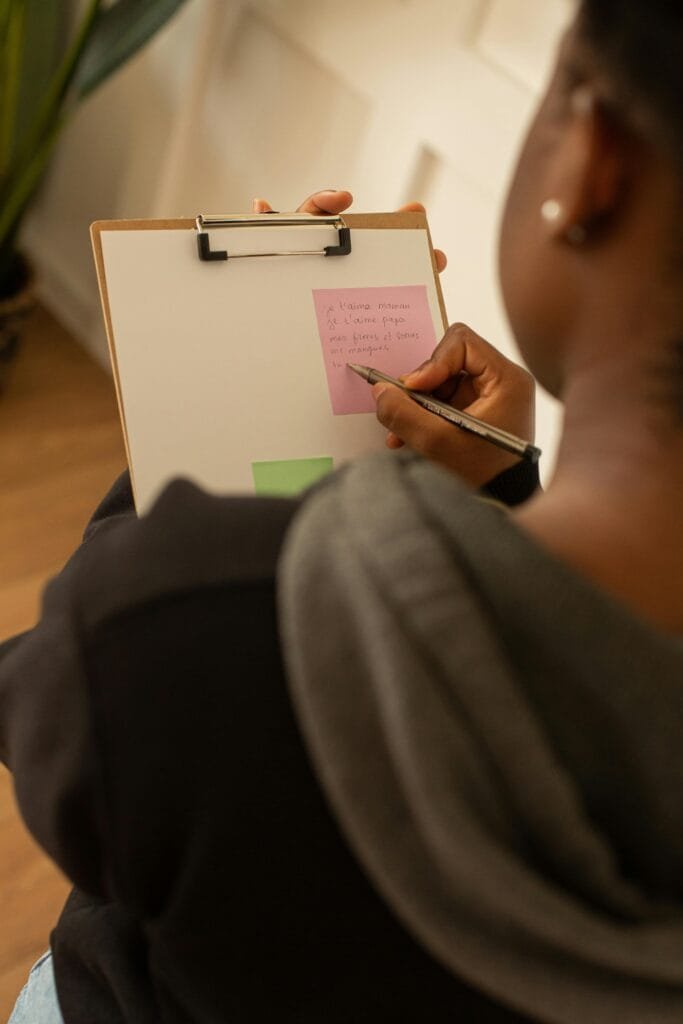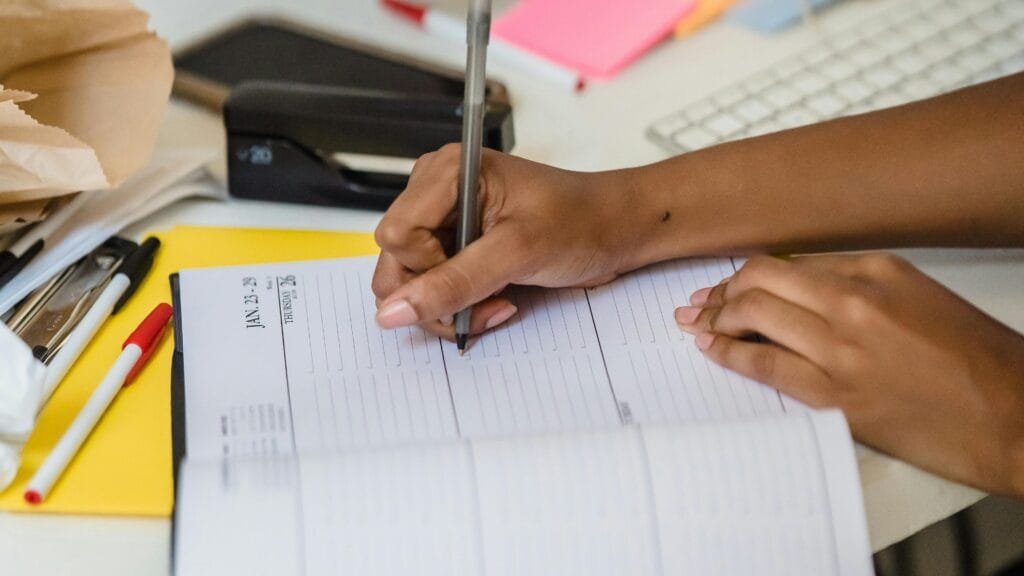1. Create a Study Schedule (and Stick to It)

Old-school but effective! Setting aside specific times to study helps you stay on track and avoid last-minute cramming. A regular routine builds discipline and ensures you’re steadily working through your material without feeling overwhelmed.
2. Break It Down Into Chunks

The idea of studying for hours at a time can feel daunting. Instead, break your study sessions into smaller, manageable chunks. This technique, known as the Pomodoro method, has been around forever because it works—your brain retains more when you study in short bursts with breaks in between.
3. Review Regularly

You can’t just study something once and expect it to stick. Regular review sessions help move information from short-term to long-term memory. Whether it’s flashcards or summarizing notes, going over material multiple times cements it in your brain.
4. Active Learning Beats Passive Reading

Reading over notes? Meh. Writing things down, explaining concepts to yourself, or teaching someone else? Way more effective! Active learning engages your brain and helps you understand the material on a deeper level.
5. Stay Organized

Messy notes, random textbooks scattered everywhere? That’s a recipe for stress. Staying organized—whether it’s color-coding your notes or keeping a tidy study space—makes it easier to focus and keeps your mind clear when it’s crunch time.
6. Get Plenty of Sleep

Back in the day, people knew the power of a good night’s sleep, and it’s still one of the best study hacks out there. All-nighters may seem tempting, but sleep is when your brain processes and stores the information you’ve learned. So, skip the cramming and hit the pillow!
7. Eliminate Distractions

It’s hard to focus when your phone is buzzing, or Netflix is calling your name. Set up a distraction-free study zone by turning off notifications and letting others know when it’s study time. You’ll get more done in less time with fewer interruptions.
8. Ask for Help When Needed

Don’t be afraid to raise your hand (literally or figuratively). Whether it’s reaching out to a professor, joining a study group, or using online resources, asking for help when you’re stuck can save you time and frustration. Plus, it shows initiative.
9. Use Practice Tests

Practice makes perfect. Testing yourself on what you’ve learned helps solidify the information and prepares you for the actual exam. Plus, it helps identify weak spots so you can focus on areas that need more attention.
10. Stay Positive and Motivated

Studying can be tough, but keeping a positive mindset is crucial. Remind yourself why you’re studying in the first place—whether it’s for a dream career or personal growth. Celebrate small wins, and stay motivated by keeping your end goal in sight.
11. Teach What You’ve Learned

One of the best ways to learn is to teach. Explaining concepts to a friend or even pretending to teach an imaginary class helps reinforce your understanding and highlights areas that need more attention.
12. Use Visual Aids

Visual learners can benefit from creating diagrams, mind maps, or flashcards. Visual aids help break down complex information and make it easier to remember, especially for subjects involving processes or relationships.
13. Find Your Ideal Study Environment

Not everyone studies well in the same environment. Find a space that works for you, whether it’s a quiet library, a cozy café, or your bedroom. The right environment can make all the difference in your focus and productivity.
14. Set Specific Goals for Each Session

Before you start studying, set specific goals for what you want to accomplish. Whether it’s mastering a particular concept or completing a set number of practice problems, having clear objectives keeps you focused and on track.
15. Take Care of Your Body

Eating well, exercising, and staying hydrated all contribute to better study performance. Exercise helps boost your mood and energy levels, while a balanced diet fuels your brain for maximum efficiency. Treat your body well, and your mind will thank you.
16. Avoid Multitasking

Multitasking while studying is a recipe for distraction. Focus on one subject or task at a time to maximize efficiency and comprehension. By dedicating your attention to a single topic, you’ll retain more information and complete your work faster.
These timeless study habits have stood the test of time for a reason. Which one will you start using to level up your academic game?



